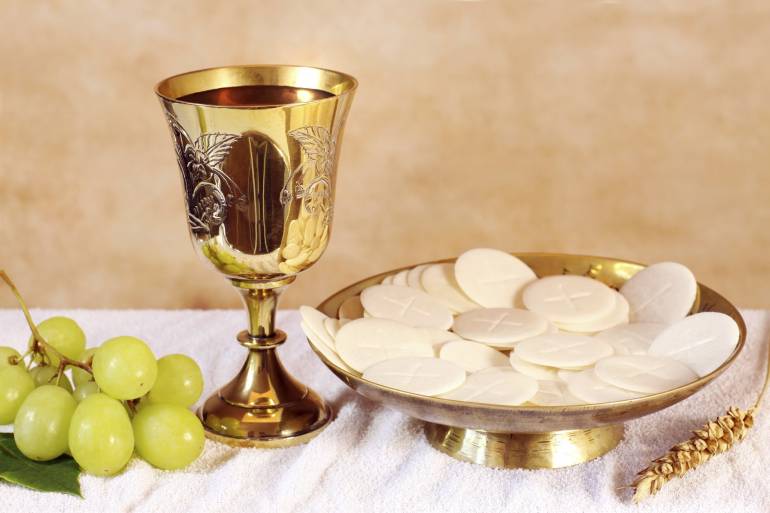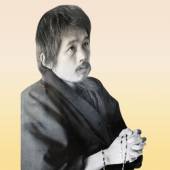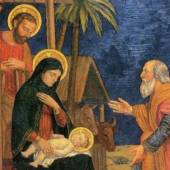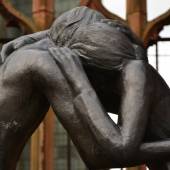The Body and Blood of Christ guarantee eternal life

June 11, Solemnity of the Body and Blood of Christ
Sunday of the 10th Week in Ordinary Time
Daily Readings: 1st Reading: Deuteronomy 8:2-3,14b-16a; 2nd Reading: 1 Corinthians 10:16-17; Gospel: John 6:51-58
Combo culture is creeping into medicine and other realms of human life. Combo food allows us to enjoy a variety of food items at a lower cost. Combo treatment packages reduce expenses considerably. Discussions on diet and nutrition go on endlessly in the media to increase longevity.
Two thousand years ago, Jesus Christ, the Son of God, gave a combo by giving up his life on the cross after giving his own body and blood as spiritual food to the believing humanity so that they may have eternal life. This combo spiritual food is a sign of unity and sharing. He believed in promoting energy by giving up his life. That is why he taught humanity that “… unless a grain of wheat falls into the earth and dies, it remains just a single grain; but if it dies, it bears much fruit” (John 12:24). Jesus is the first grain to fall and die to generate life. The solemnity of Corpus Christi is all about developing, sustaining, sharing, promoting, and giving life by breaking.
The First Reading from the Book of Deuteronomy is a flashback to the forty years of Israel’s desert sojourn. The desert is a place of all kinds of hardship. It is vast, terrifying, dry, and waterless. There are poisonous snakes and scorpions. The Lord God brings out water from solid rocks. He makes manna from nowhere (man + hu = what is this?) and quails to fall. The highlights of this reading are the following: God is their redeemer. He leads them on their long journey. He is their leader. Twice in five verses, the author of Deuteronomy insists that God gives them manna to eat, which no Israelite had eaten before.
This is to teach them “that human beings must not depend on bread alone to sustain them, but on everything that the Lord says” (v. 3). Jesus quoted this particular verse during his encounter with the tempter when he asked Jesus to turn the stones into bread (Luke 4:4). We are not supposed to forget all that the Lord God did to the people of Israel. That is why, when the Lord Jesus instituted the Holy Eucharist, he said to his disciples: “Do this in remembrance of me” (Luke 22:19).
The Responsorial Psalm is a song of praise and glory. The author reminds the Israelites how God strengthened the bars of their gates and blessed their children. He ensured that all their enemies disappeared from the face of the earth so that there was peace within their borders. He filled them with the best wheat. He is the one who sustains the world. The way God has been with Israel is exceptional. No one else experienced Him in this manner.
The Second Reading from the First Letter of St. Paul to the Corinthians emphasizes the spiritual, social, and psychological effects of eating the Body of Jesus and drinking the Blood of Christ. We are sharers of the one Body and Blood of Christ. Though we are many, we are destined to become one as there is one loaf of bread. Writing this chapter in the context of idol worship (looking for different kinds of combos in our life), Paul questions the Corinthians to reflect upon the greatness of the Body and Blood of Jesus. Paul aims to create fellowship among the Corinthian believers. Drinking blood for the Jews is equal to drinking life. Those who drink the life of Jesus are expected to share their life with others.
In the Gospel reading from St. John, Jesus presents himself as the living bread from heaven. This bread is nothing but the flesh of Jesus. This is the highest form of giving and sacrifice. It is all about self-giving without counting the cost. Those who partake in this food will enjoy worldly and other-worldly benefits. While on earth, they will remain with Jesus, and Jesus will stay with them. They abide in each other, creating communion so that one may represent the other. After their deaths, they will live forever in the presence of God. For that purpose, they will be raised from their graves on the last day.
The Body and Blood of Christ guarantee eternal life. It will not be like the bread that the Israelites ate in the desert (v. 58). The ones who share this spiritual combo-food will have to become the living Body and Blood of Christ for the sake of suffering humanity today.
Radio Veritas Asia (RVA), a media platform of the Catholic Church, aims to share Christ. RVA started in 1969 as a continental Catholic radio station to serve Asian countries in their respective local language, thus earning the tag “the Voice of Asian Christianity.” Responding to the emerging context, RVA embraced media platforms to connect with the global Asian audience via its 21 language websites and various social media platforms.














